Unsweetened milk has a distinctive creamy and fragrant flavor and is often used in many dishes. So, how many calories are in a carton of unsweetened milk, and will drinking it make you fat? Let’s find out together in this article!
1 Nutritional Value of Unsweetened Milk
Nutritional Value of Unsweetened Milk
According to Vnexpress, a 100ml carton of unsweetened fresh milk provides various nutrients, including 4.6g of protein, 3g of fat, 3.3g of carbohydrates, 104mg of calcium, 8mg of phosphorus, 0.32g of sodium, and vitamins A, B1, B2, and D.
Health Benefits of Unsweetened Milk
In addition to its diverse and rich nutritional content, unsweetened fresh milk also offers numerous health benefits:
- Improves menstrual issues: With its rich content of vitamins and minerals, drinking warmed unsweetened milk can effectively relieve fatigue and stomach aches during menstrual periods for women.
- Promotes better sleep: Thanks to the presence of tryptophan – a type of protein, unsweetened milk helps you relax and sleep better.
 Unsweetened milk promotes healthy skin and hair
Unsweetened milk promotes healthy skin and hair
- Gives glowing skin: Unsweetened milk is particularly rich in amino acid chains, which help moisturize the skin and gently remove dead skin cells due to the presence of lactic acid.
- Promotes shiny and healthy hair: The abundance of calcium, protein, and other fatty acids in unsweetened milk helps nourish your hair, making it shinier and softer.
 Unsweetened milk helps fight aging and prolongs life
Unsweetened milk helps fight aging and prolongs life
- Anti-aging and longevity: Another bioactive compound in unsweetened milk is SOD, which boosts metabolism, fights free radicals, and prolongs life.
- Promotes growth and development: In addition to calcium, which stimulates growth and increases height, the water and protein in unsweetened milk also support the recovery of injured tissues and cells, contributing to natural growth and development.
- Improves memory: The high content of zinc in unsweetened milk can enhance brain function, including judgment and decision-making, thus naturally improving memory and intelligence.
2 How Many Calories Are in a Carton of Unsweetened Milk?
Generally, a 100ml carton of unsweetened milk provides around 62 calories, and the calorie count may vary depending on the brand:
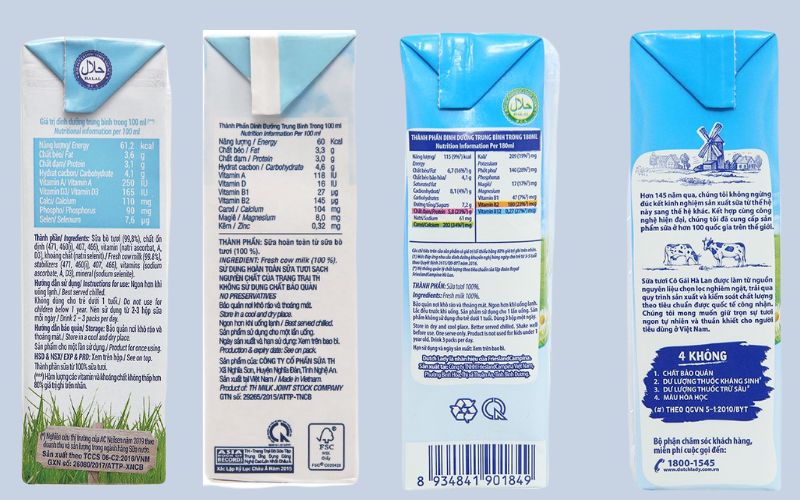 Average calorie content of unsweetened milk
Average calorie content of unsweetened milk
- Vinamilk: 60 calories/100ml.
- Dutch Lady: 61.2 calories/100ml.
- True Milk: 115 calories/180ml.
- Nutifood: 65 calories/100ml.
- Nutifood Sterilized Unsweetened Milk: 60 calories/100ml.
3 Will Drinking Unsweetened Milk Make You Fat?
Due to its relatively low-calorie content, unsweetened milk usually does not significantly affect your weight. However, this depends on various factors such as the time of consumption, the amount consumed per day, and especially the fat content of the milk.
 Whether unsweetened milk makes you fat depends on several factors
Whether unsweetened milk makes you fat depends on several factors
Specifically, with milk containing 7-8g of fat (almost three times the fat content of regular milk), your body will easily absorb the fat in the milk and be stimulated to absorb all the nutrients from your meals, leading to weight gain and an undesirable body shape.
4 Notes on Drinking Unsweetened Milk for Better Health
To ensure you get the full benefits of unsweetened milk, keep in mind the following:
- Do not drink expired milk: Expired milk usually has a sour taste and foul odor, and its active ingredients have fermented and may be harmful to your health.
- Do not boil milk for too long: Warm your unsweetened milk for 3-6 minutes to avoid losing its nutritional value.
- Do not drink milk on an empty stomach: When hungry, stomach acids can curdle with casein in unsweetened milk, causing stomach aches, discomfort, and even digestive issues. Therefore, drink milk after meals or with light snacks.
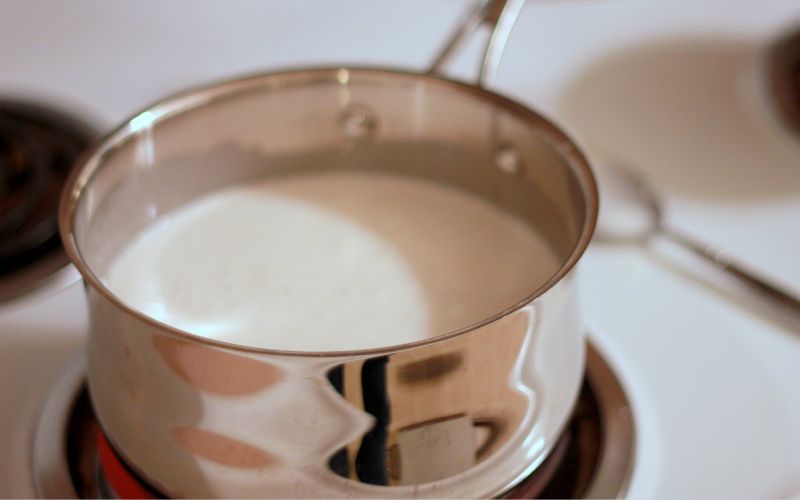 Notes on drinking unsweetened milk for better health
Notes on drinking unsweetened milk for better health
- Do not add sugar to hot milk: At high temperatures, lactose in milk reacts with sugar to form lysine, which is harmful to the digestive system and the body. Therefore, only add sugar to warm milk.
- Do not give unsweetened milk to children under one year old: For infants under one year old, breast milk or formula is recommended to avoid negative impacts on nutrient absorption and digestion.
- Choose unsweetened milk according to age, weight, and body shape: Depending on your age, weight, and body shape, opt for low-fat, skimmed, or whole milk to help manage your weight healthily.
5 Delicious Dishes Made with Unsweetened Milk
Unsweetened milk is commonly used in various desserts. Here are some delicious recipes you can try:
Fresh Cream
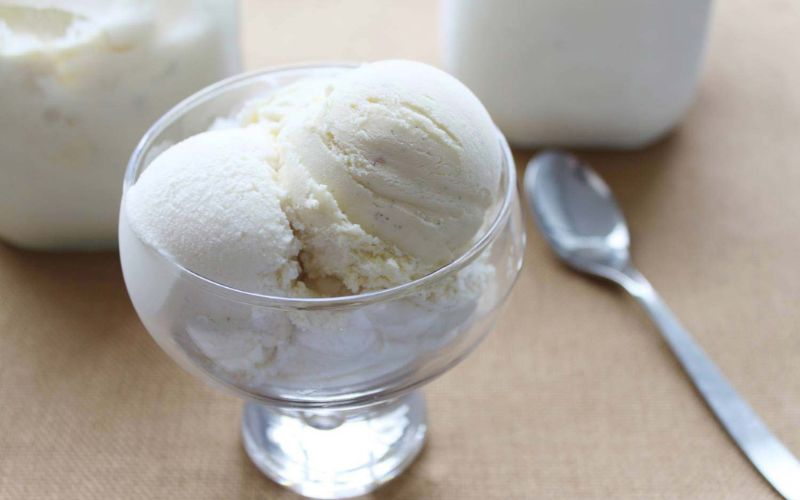 How to make fresh cream from unsweetened milk
How to make fresh cream from unsweetened milk
What could be better on a hot summer day than a delicious ice cream cone? With just unsweetened milk and a few simple ingredients, you can easily make this refreshing treat with a creamy, sweet, and delightful flavor.
Reference:
Panna Cotta with Passion Fruit
 Panna cotta with passion fruit
Panna cotta with passion fruit
Surprise your family and friends with this delicious panna cotta! With just unsweetened milk and a few other ingredients, you can make a dessert that’s sweet, tangy, creamy, and incredibly tasty.
Reference:
Japanese Melon Bread
 Japanese melon bread made with unsweetened milk
Japanese melon bread made with unsweetened milk
Impress your loved ones with this unique and tasty treat! With ingredients like unsweetened milk, melon puree, and more, you can make Japanese melon bread with a crispy golden crust and a soft, fluffy texture.
Reference:
Spanish Churros
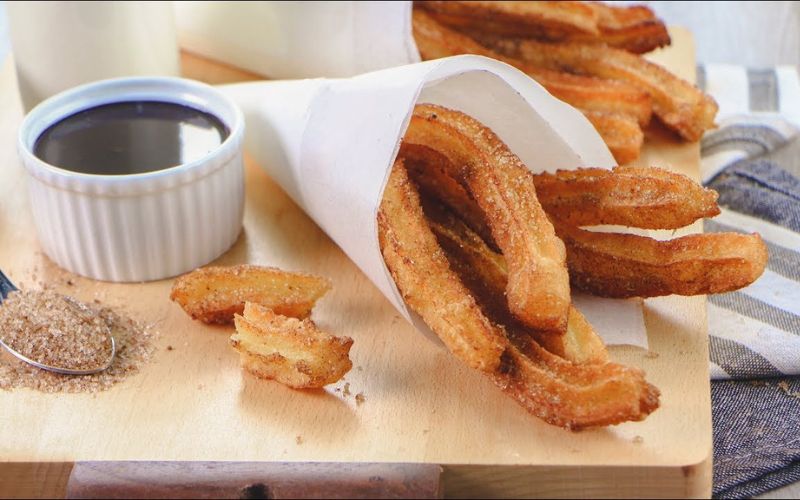 Spanish churros made with unsweetened milk
Spanish churros made with unsweetened milk
Treat your friends to Churros, a specialty of Spain, loved for its crispy exterior and fluffy, creamy interior. It’s a delightful treat made with unsweetened milk and a few other simple ingredients.
Reference:
Chocolate Pudding
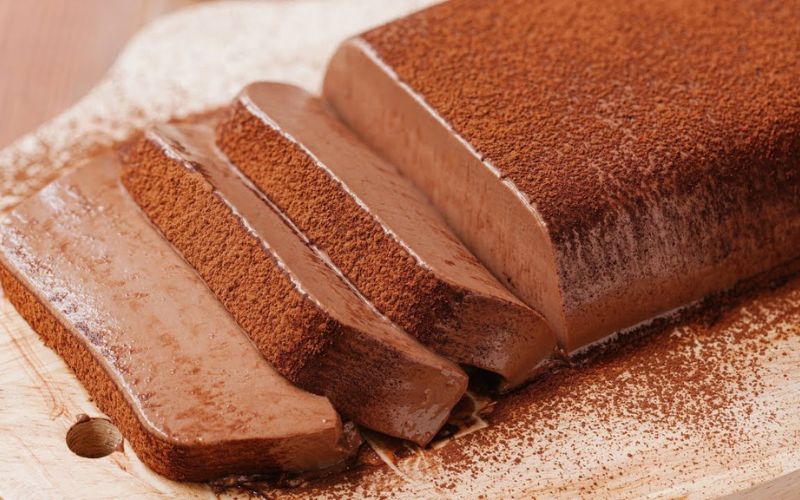 Chocolate pudding made with unsweetened milk
Chocolate pudding made with unsweetened milk
Indulge in this sweet and elegant dessert made with unsweetened milk. It’s not just visually appealing but also incredibly tasty, with a creamy and rich flavor that will leave you wanting more.
Reference:
This article has provided comprehensive information about the calorie content and the effects of drinking unsweetened milk on weight gain. We hope that with this knowledge, you can make informed choices about the foods that align with your health goals and body type.
Source: Vnexpress
































